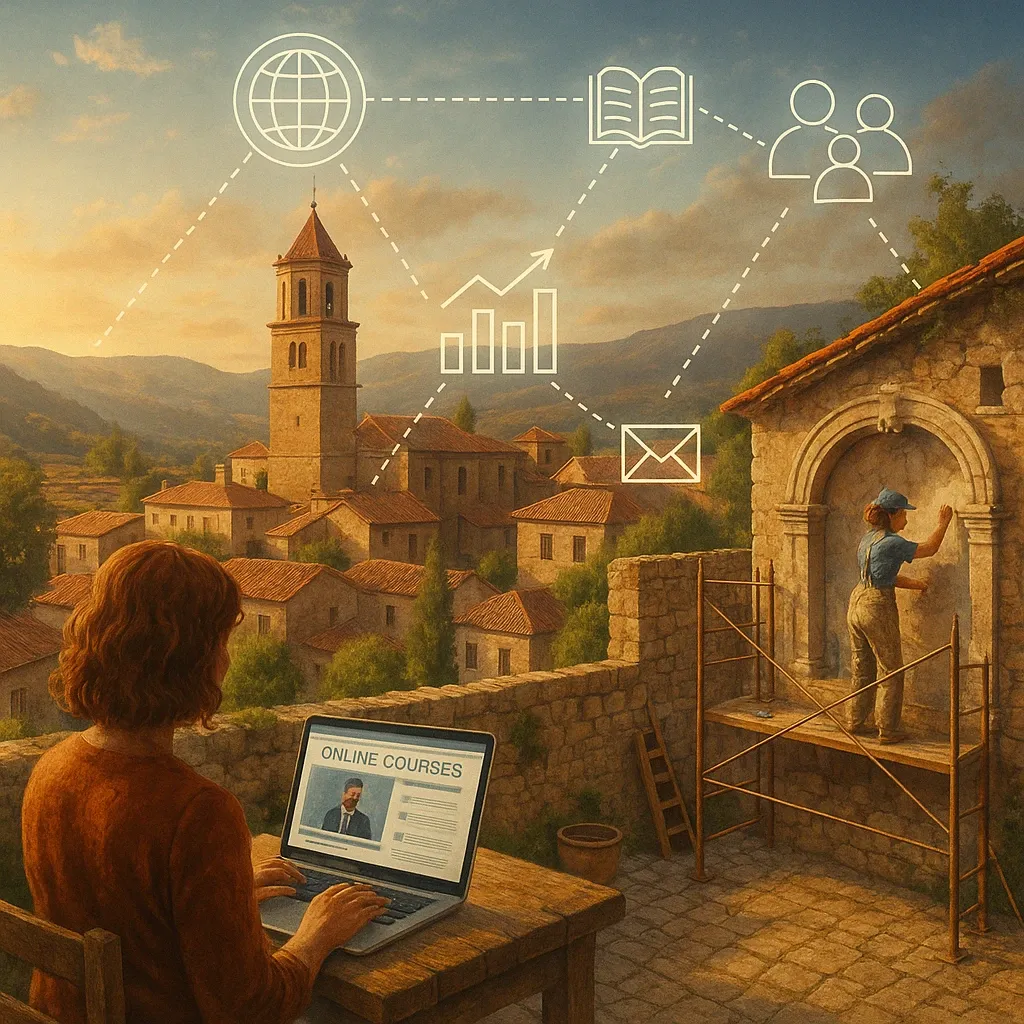+90 224 504 28 12 (TR)
Üçevler Mahallesi İzmir Yolu Cadde No:241/C Blok Westpoint D:32 Nilüfer, Bursa, 16120

The tourism sector is a cornerstone of Europe’s economy and plays a crucial role in regional development and innovation. However, the COVID-19 pandemic drastically impacted this sector, revealing deep social, economic, and cultural imbalances in rural areas across Europe. Many of these villages, despite their rich historical and cultural heritage, face challenges such as depopulation, unemployment, and a lack of opportunities for younger generations and minorities. The Re-Cultural Heritage project was designed to address these pressing issues by fostering community cohesion and sustainable economic growth through education, cultural preservation, and quality tourism.
PROJECT PROGRAMME
The project was implemented under the Erasmus+ Programme, Action Type KA220-ADU – Cooperation Partnerships in Adult Education. The project ran for 24 months, from November 1, 2021, to November 1, 2023.
PROJECT AIM
The main aim of Re-Cultural Heritage was to empower local communities in rural areas by promoting cultural heritage as a driver for sustainable economic development and social inclusion. The project sought to enhance employability, foster entrepreneurship, and support innovative practices in cultural restoration and tourism, ultimately contributing to the revitalization of rural regions.
PROJECT OBJECTIVES
The project aimed to improve employability and cross-sectoral cooperation in rural areas, increase adult competencies in social, touristic, and artistic sectors, support new approaches that enhance local competitiveness and create job opportunities, promote networking in education, entrepreneurship, leadership, and equal opportunities, address learning gaps for vulnerable groups and improve their access to employment, adapt local employment opportunities to the post-pandemic landscape, and raise awareness of the economic value of cultural heritage in rural development.
PROJECT TARGET GROUP
The project primarily targeted adults living in rural areas, including unemployed individuals, minorities, and vulnerable groups. It also engaged local authorities, educators, cultural heritage professionals, and entrepreneurs who contribute to the preservation and promotion of cultural heritage and sustainable tourism.
PROJECT ACTIVITIES
The project involved the creation of a European network to promote quality tourism and cultural heritage, development of a European Framework Basic Skills Handbook to guide local administrations in designing effective training programmes, launch of an online learning platform for adults focusing on restoration techniques and digital learning, research and publication of National Assessment Reports evaluating the socio-economic impact of cultural heritage in rural development, organisation of learning and training activities to build capacities in innovative restoration methods, hosting of five international Multiplier Events to disseminate project results and foster partnerships, implementation of a two-phase teaching process to train local educators and professionals in modern restoration and heritage management techniques, and promotion of project outcomes through digital channels, ensuring long-term impact and sustainability.
For more information, please visit the project website: https://www.re-culturalheritage.eu